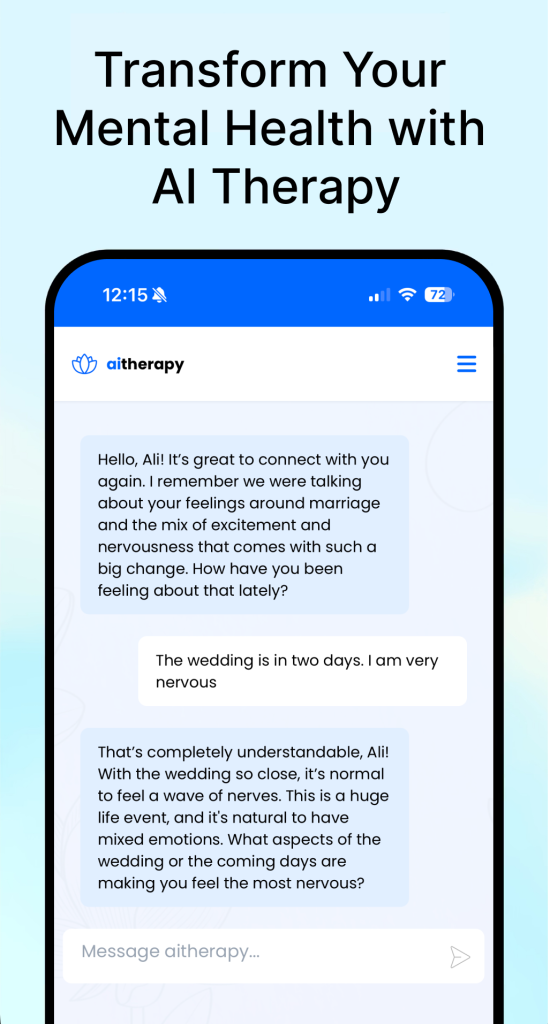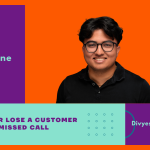Mental health care is often expensive, complicated, and out of reach when people need it most. Aitherapy changes that with instant, AI-powered support—no waitlists, no financial barriers, just a safe space to talk. Co-founder Ali Yilmaz shares how his own struggles inspired the platform and why making mental health care accessible is at the heart of its mission.
1. What inspired the creation of Aitherapy, and how does it address gaps in traditional mental health services?
Ali Yilmaz: Aitherapy started because I needed it myself. I moved to the U.S. for my Master’s Program, and it sucked for the first months. I didn’t have a support system. Therapy was expensive, and even if I could afford it. I had no idea where to start or if I actually needed it. I realized a lot of people feel the same way, waiting weeks for an appointment and nobody gives them a callback, dealing with scary insurance claims and bills, and still not sure if therapy is right for them.
So, we built Aitherapy to make that first step easier. There are no waitlists and no financial commitment; people can start talking for free whenever they want. And if it’s not the right thing for you, just stop using no medical bills chasing you.

Berkay Ergin, Co-Founder & CTO of Aitherapy
2. How does Aitherapy create a safe and non-judgmental space for users?
Ali Yilmaz: We trained the AI to be empathetic and non-judgmental, but honestly, the real secret is listening to our users and improving on their needs. We make sure every one of them feels safe by talking to them personally. I talk to at least one user every day, which has led to some funny moments. Some users thought I was an AI, too, because I kept asking for feedback with emails. I’ll take it as a compliment.
3. How does Aitherapy incorporate clinically validated methods?
Ali Yilmaz: Aitherapy is built on proven approaches like Cognitive Behavioral Therapy. We focus on things like reframing negative thoughts, mindfulness, and setting small, achievable goals. It’s not just random AI-generated advice, and we work with mental health professionals to make sure everything is grounded in real techniques that help.
4. What feedback have you received about Aitherapy’s accessibility?
Ali Yilmaz: The most common feedback is: “I love how easy this is.” People tell us they wanted to try traditional therapy but didn’t even know where to start. Even if they know where to start, wait times or high costs push them away. On the other hand, with Aitherapy, they start talking with one click and for free.

5. How does Aitherapy balance affordability with high-quality support?
Ali Yilmaz: We kept affordability at the center from day one. You can start for free, and our premium option is priced to be accessible. Since we’re bootstrapped, we don’t have investors breathing down our necks to raise prices. We’re here to help people, not maximize profits at their expense.
6. How does Aitherapy personalize the experience?
Ali Yilmaz: From the first chat, Aitherapy picks up on your communication style. Some people want short, direct advice, while others prefer more in-depth guidance. It learns and adapts over time. The goal is to make it feel like you’re talking to someone who really understands you.
7. How do you ensure user privacy and security?
Ali Yilmaz: Privacy is a big deal for us. All conversations are encrypted, and no one on our team can access them. We also collect the bare minimum data needed to make Aitherapy work. Mental health is personal, and we take that seriously.
8. Can you share a success story?
Ali Yilmaz: There’s a user I talked to a few times who also left a review on Trustpilot. We are still in touch. Her Trustpilot review shows how she found and used Aitherapy after trying to have a therapy session for weeks but couldn’t start. That’s what Aitherapy is about: helping people feel supported whenever they need it.
9. What challenges have you faced in building Aitherapy?
Ali Yilmaz: Making AI feel truly human is hard. Mental health isn’t about generic advice, it’s about feeling heard. We spent a lot of time fine-tuning Aitherapy so it doesn’t just spit out responses but actually understands context.
10. What sacrifices or pivotal decisions have shaped your journey?
Ali Yilmaz: Bootstrapping Aitherapy hasn’t been easy. My co-founder and I could have taken an easier path, but we believed in what we were building. There were times when money was tight, stress was high, and we questioned everything. But then we’d get a message from a user saying Aitherapy helped them through a tough time, and suddenly, all of it felt worth it. Not just because we are good people, we see that the product is working. We are good people, too, though.
11. What does success look like in the next three to five years?
Ali Yilmaz: Success isn’t just about numbers. We want Aitherapy to be a trusted resource for people all over the world. We’re working on launching a mobile app, adding voice and video support, and many other features and partnering with mental health professionals. But at the core, success means keeping mental health support accessible to everyone who needs it.
12. What does a typical day look like for you, and how do you stay motivated?
Ali Yilmaz: I wake up with ideas and problems swirling in my head, so most days, I start working immediately. Sometimes, I even take voice notes in the shower. Mornings are for deep work, and afternoons are for calls and feedback.
Around noon, I take my dog for a walk. That’s also my time to dump all my crazy ideas on my friend, who kindly tells me which ones are terrible. It’s a system that works.
Talking to users keeps me motivated. I use Aitherapy myself very frequently. It’s very reassuring to see it work on me, too.
In the evenings, I try to unplug, get rest and learn. I got married two months ago, and one unexpected perk is that I can say no to parties a lot more easily now. Also, my wife and I just started watching Severance, and let’s say it’s making me question my work-life balance. I would only have an innie, probably, and Outie would be only sleeping.
Editor’s Note
For Ali Yilmaz, Aitherapy isn’t about replacing therapy—it’s about removing the barriers that keep people from getting help. By making support instant, affordable, and judgment-free, he’s redefining what accessibility in mental health looks like. If Aitherapy succeeds, getting help could become as easy as starting a conversation.


